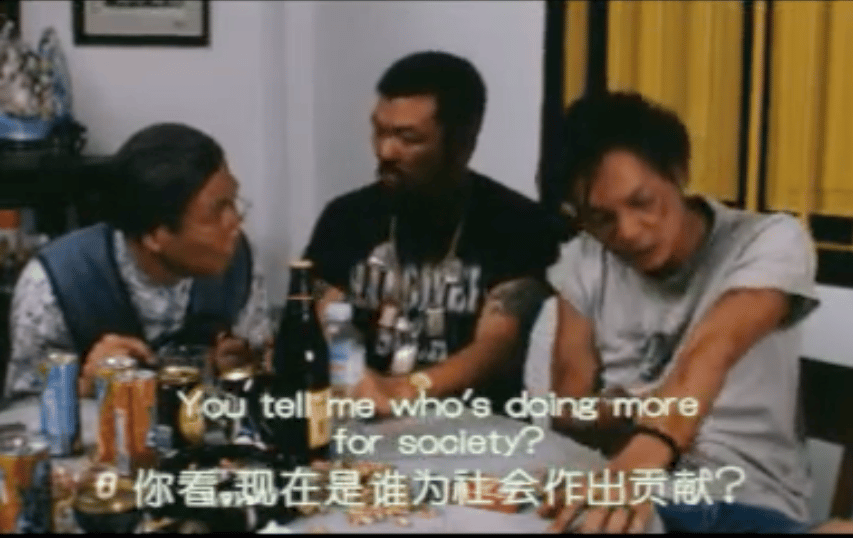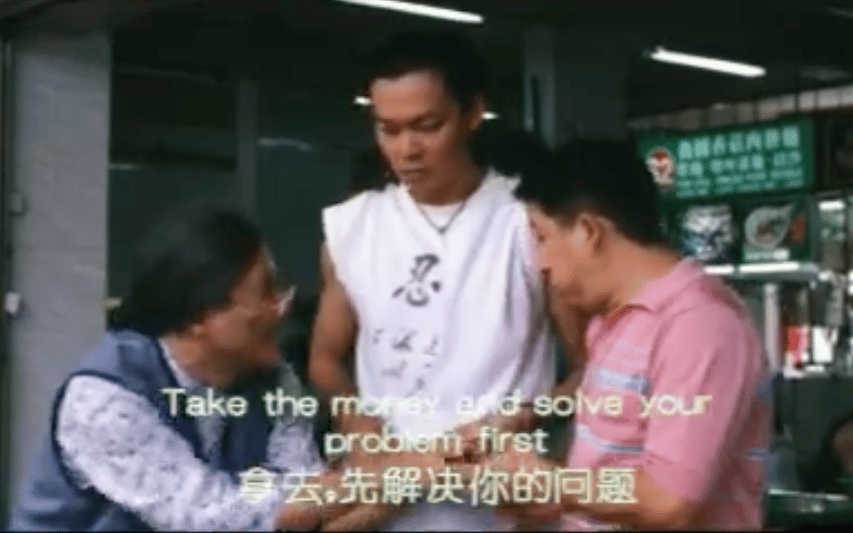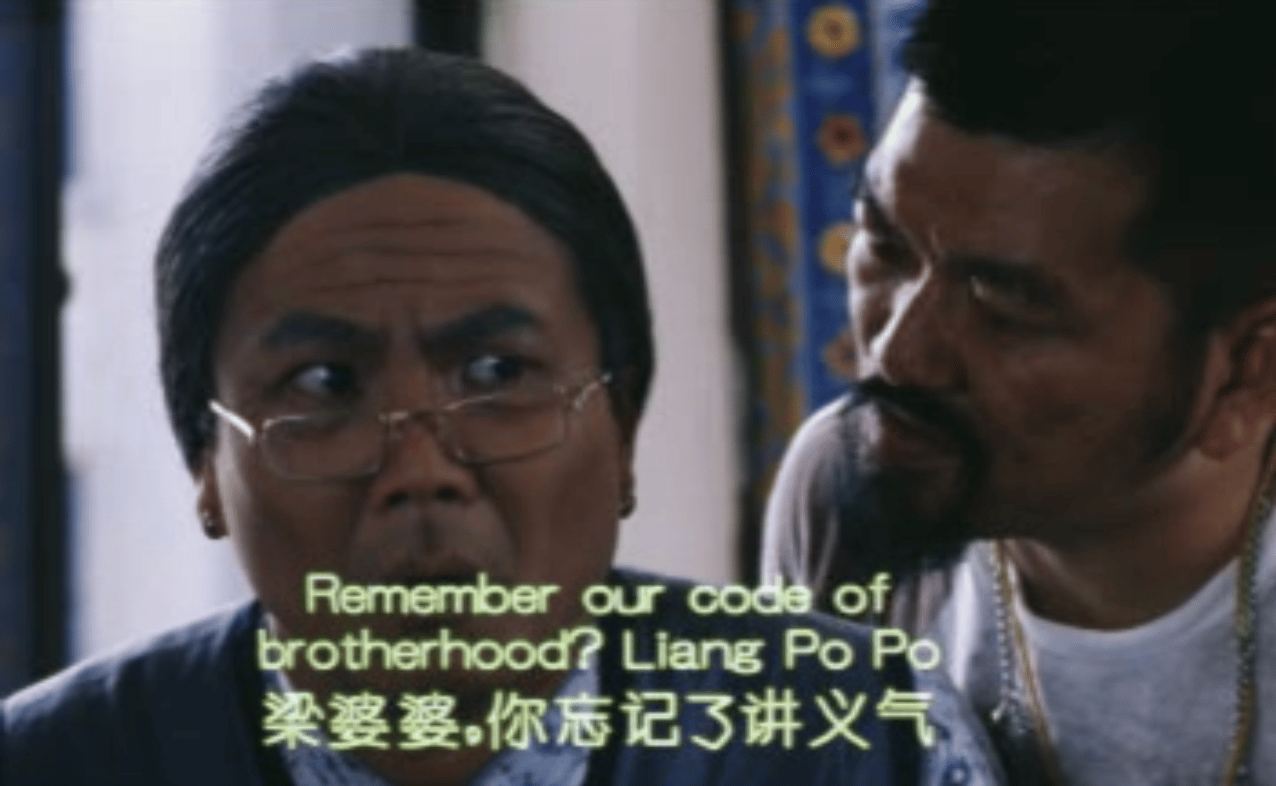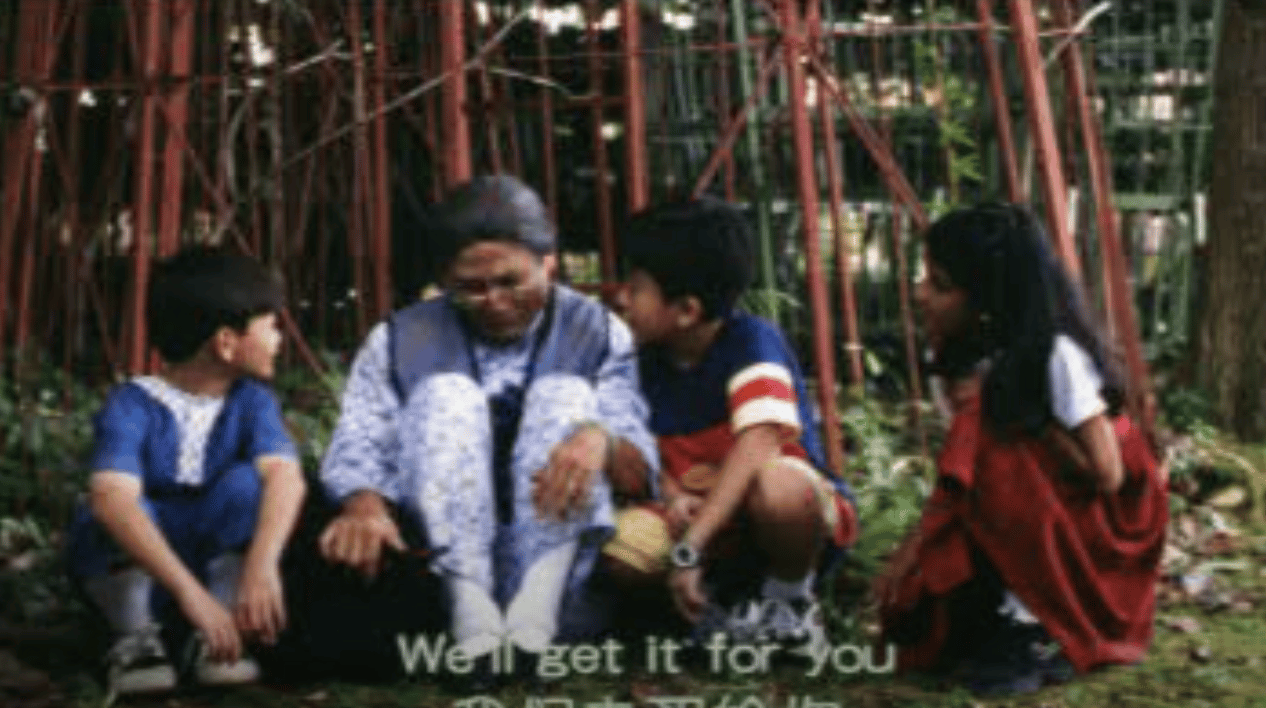What Liang Po Po Teaches Us About Kindness
One of my favourite Singapore films is "Liang Po Po: The Movie" (1999).
The movie is a comedy-drama about an elderly woman (played by Jack Neo) who joins a street gang after befriending two men, Ah Beng and Ah Seng.
The gang takes advantage of her naivety by involving her in the sale of pirated VCDs and debt collection.
When the gang’s Big Boss brings in foreign criminal advisors to reshape their operations, they decide Liang is the perfect pawn for a bank robber. After all, no one would suspect an elderly lady and she would likely gain sympathy if caught.
Liang proceeds with the robbery, only to discover that she has been deceived.
As a result, she was chased by both criminals and the police.

The show left me in both laughter and tears.
Beneath its humour lies a heartfelt message about the universal human desire for love, belonging, and dignity.
Liang Popo was lonely and yearned for connection. The gang provided her with a sense of belonging and the warmth of friendship.
Her kindness and generosity moved her to go out of her way for those she cared about, even when they didn’t always deserve it.
For example, when Ah Beng and Ah Seng lost money from selling pirated CDs and feared the wrath of the gang leader, she pawned her jade bangle and earrings to help them.
Touched by her sacrifice, they later redeemed her jewellery and did their best to protect her.

In another instance, she chased down someone who owed the gang money. Although she was promised $8,000, she only received $20.
Yet, she felt that money was merely a 身外物 (external possession) and was simply glad her efforts brought money and joy to the 150 members of the gang.
Many of us are taught from a young age to be kind.
Yet as we grow older, we come to realise that kindness is not always reciprocated.
Many of us have experienced being judged, unappreciated or betrayed when we do good.
In my own experience, I have tried to share as much knowledge as I can with others in my career and also supported their promotions. Yet, instead of appreciation, I was spoken about negatively. It was hurtful.
So, how can we continue to stay true to our values when others may respond negatively?
This is my approach:
1. Practice Discernment

Liang Popo’s kindness is admirable. At the same time, her story reminds us that kindness needs to be paired with discernment, the ability to recognise people’s intentions and act wisely.
From a Buddhist perspective, it is not unkind to distance ourselves from those who repeatedly cause harm.
In fact, it can be a compassionate act for ourselves and for them.
By stepping back, we avoid enabling unwholesome behaviour and protect our peace of mind.
If your intention was sincere, how someone else responds is their karma, not yours. Your good deed remains positive, no matter how others choose to receive it.
If someone responds poorly, reacting with anger, suspicion, or criticism, their negativity reflects a habit of mind already present within them.
2. Give Because You Believe In Doing Good, Not to Seek Validation
It is only human to want to be liked and appreciated.
However, when our kindness is driven purely by the need for approval, we open ourselves up to disappointment.
A more grounding question is, “Did I act in a way that reflects who I want to be?”
Your kindness is meaningful even if no one praises it because you have lived according to your values in life.
Attachment to praise and reciprocation only leads to suffering. We are encouraged to act out of compassion, not ego or craving.
Letting go of needing appreciation ensures your are not overshadowed by bitterness or resentment.
Someone’s failure to reciprocate might also stem from ignorance, suffering, fear, or their own unmet needs. Their behaviour is a statement of their pain, not your value. This perspective invites us to respond with compassion, not resentment.

3.Trust That Kindness Will Come Back to You
Even though Liang Popo was not wealthy, she bought McDonald’s toys for a group of children.
Later, when she was trying to escape from the police, these same children helped disguise her and shielded her from them.
This reflects karma: That positive actions plant the seeds for good outcomes, even if the effects are not immediate.
Not everyone will appreciate your heart. Some will overlook it or misunderstand it. Others may misuse it. Your goodness is never wasted.
The right people will see it, and the right moments will return it.
When we act with genuine kindness, we plant positive seeds. These seeds may ripen in this life, or in future ones.
Liang Popo’s story reminded me that while the world is not always kind, kindness is never wasted.
We do not let others take away what is most important to us, our values and who we are.
I would love to hear your thoughts!
Have you ever experienced your kindness being taken for granted?
How did you navigate it—and what helped you stay true to your values?
In the mean time, here is a short Thai film which is quite relevant to this topic that I watched a few years ago.
Jeraldine Phneah focuses on the challenges working adults face - rising costs, burnout, job insecurity, and caregiving - and offers reflections to drive meaningful change.